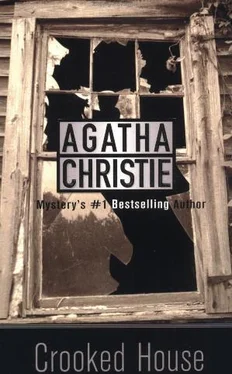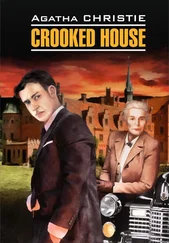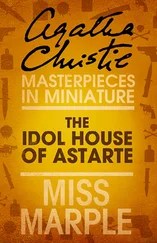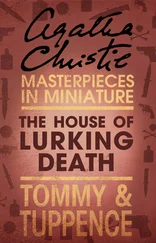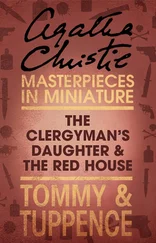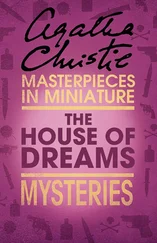Agatha Christie - Crooked House
Здесь есть возможность читать онлайн «Agatha Christie - Crooked House» весь текст электронной книги совершенно бесплатно (целиком полную версию без сокращений). В некоторых случаях можно слушать аудио, скачать через торрент в формате fb2 и присутствует краткое содержание. Год выпуска: 2002, ISBN: 2002, Издательство: St. Martin's Minotaur, Жанр: Классический детектив, на английском языке. Описание произведения, (предисловие) а так же отзывы посетителей доступны на портале библиотеки ЛибКат.
- Название:Crooked House
- Автор:
- Издательство:St. Martin's Minotaur
- Жанр:
- Год:2002
- ISBN:ISBN-13: 978-0312981662
- Рейтинг книги:4 / 5. Голосов: 1
-
Избранное:Добавить в избранное
- Отзывы:
-
Ваша оценка:
- 80
- 1
- 2
- 3
- 4
- 5
Crooked House: краткое содержание, описание и аннотация
Предлагаем к чтению аннотацию, описание, краткое содержание или предисловие (зависит от того, что написал сам автор книги «Crooked House»). Если вы не нашли необходимую информацию о книге — напишите в комментариях, мы постараемся отыскать её.
Crooked House — читать онлайн бесплатно полную книгу (весь текст) целиком
Ниже представлен текст книги, разбитый по страницам. Система сохранения места последней прочитанной страницы, позволяет с удобством читать онлайн бесплатно книгу «Crooked House», без необходимости каждый раз заново искать на чём Вы остановились. Поставьте закладку, и сможете в любой момент перейти на страницу, на которой закончили чтение.
Интервал:
Закладка:
"It wouldn't be stupid at all. If there's no will she'll get everything."
"Sh - here's Gaitskill back again."
The lawyer re-entered the room. Chief Inspector Taverner was with him and behind Taverner came Philip.
"I understood from Mr. Leonides,"
Gaitskill was saying, "that he had placed his will with the Bank for safe keeping."
Taverner shook his head.
"I've been in communication with the Bank. They have no private papers belonging to Mr. Leonides beyond certain securities which they held for him."
Philip said:
"I wonder if Roger - or Aunt Edith -Perhaps, Sophia, you'd ask them to come down here."
But Roger Leonides, summoned with the others to the conclave, could give no assistance.
"But it's nonsense - absolute nonsense," he declared. "Father signed the will and said distinctly that he was posting it to Mr.
Gaitskill on the following day."
"If my memory serves me," said Mr.
Gaitskill, leaning back and half-closing his eyes, "it was on November 24th of last year that I forwarded a draft drawn up according to Mr. Leonides's instructions. He approved the draft, returned it to me, and in due course I sent him the will for signature.
After a lapse of a week, I ventured to remind him that I had not yet received the will duly signed and attested, and asking him if there was anything he wished altered.
He replied that he was perfectly satisfied and added that after signing the will he had sent it to his Bank."
"That's quite right," said Roger eagerly. "It was about the end of November last year - you remember, Philip? - Father had us all up one evening and read the will to us."
Taverner turned towards Philip Leonides.
"That agrees with your recollection, Mr.Leonides?"
"Yes," said Philip.
"It was rather like the Voysey Inheritance," said Magda. She sighed pleasurably.
"I always think there's something so dramatic about a will." s % "Miss Sophia?"
"Yes," said Sophia. "I remember perfectly."
"And the provisions of that wiU?" asked Taverner.
Mr. Gaitskill was about to reply in his precise fashion, but Roger Leonides got ahead of him.
"It was a perfectly simple will. Electra and Joyce had died and their shaire of the settlements had returned to father. Joyce's son, William, had been killed in action in Burma, and the money he left went to his father. Philip and I and the children were Ae only relatives left. Father 'explained Aat. He left fifty thousand pounds free of duty to Aunt Edith, a hundred thousand pounds free of duty to Brenda, this house to Brenda or else a suitable house in London to be purchased for her, whichever she preferred. The residue to be divided into three portions, one to myself, one to Philip, i the third to be divided between Sophia, Eustace and Josephine, the portions of the last two to be held in trust until they should come of age. I think that's right, isn't it, Mr. Gaitskill?"
"Those are - roughly stated - the provisions of the document I drew up," agreed Mr. Gaitskill, displaying some slight acerbity at not having been allowed to speak for himself.
"Father read it out to us," said Roger.
"He asked if there was any comment we might like to make. Of course there was none."
"Brenda made a comment," said Miss de Haviland.
"Yes," said Magda with zest. "She said she couldn't bear her darling old Aristide to talk about death. It 'gave her the creeps', | she said. And after he was dead she didn't want any of the horrid money!"
"That," said Miss de Haviland, "was a conventional protest, typical of her class."
It was a cruel and biting little remark. I realised suddenly how much Edith de Haviland disliked Brenda.
"A very fair and reasonable disposal of his estate," said Mr. Gaitskill.
"And after reading it what happened?" asked Inspector Taverner.
"After reading it," said Roger, "he signed it."
Taverner leaned forward.
"Just how and when did he sign it?"
Roger looked round at his wife in an appealing way. Clemency spoke in answer to that look. The rest of the family seemed content for her to do so. % "You want to know exactly what took place?"
"If you please, Mrs. Roger."
"My father-in-law laid the will down on his desk and requested one of us - Roger, I think - to ring the bell. Roger did so.
When Johnson came in answer to the bell, my father-in-law requested him to fetch Janet Woolmer, the parlourmaid. When they were both there, he signed the will and requested them to sign their own names beneath his signature."
"The correct procedure," said Mr. Gaitskill.
"A will must be signed by the testator in the presence of two witnesses who must affix their own signatures at the same time and place."
"And after that?" asked Taverner.
"My father-in-law thanked them, and they went out. My father-in-law picked up the will 5 put it in a long envelope and mentioned that he would send it to Mr.
Gaitskill on the following day."
"You all agree," said Inspector Taverner, looking round, "that this is an accurate account of what happened?"
There were murmurs of agreement.
"The will was on the desk, you said.
How near were any of you to that desk?"
"Not very near. Five or six yards, perhaps, would be the nearest."
"When Mr. Leonides read you the will was he himself sitting at the desk?"
"Yes.".
"Did he get up, or leave the desk, after reading the will and before signing it?"
"No."
"Could the servants read the document when they signed their names?"
"No," said Clemency. "My father-in-law placed a sheet of paper across the upper part of the document."
"Quite properly," said Philip. "The contents of the will were no business of the servants."
"I see," said Taverner. "At least - I don't see."
With a brisk movement he produced a long envelope and leaned forward to hand it to the lawyer.
"Have a look at that," he said. "And tell me what it is."
Mr. Gaitskill drew a folded document out of the envelope. He looked at it with lively astonishment, turning it round and round in his hands.
"This," he said, "is somewhat surprising.
I do not understand it at all. Where was this, if I may ask?"
"In the safe, amongst Mr. Leonides's other papers."
"But what is it?" demanded Roger.
"What's all the fuss about?"
"This is the will I prepared for your father's signature, Roger - but - I can't understand it after what you have all said - it is not signed."
"What? Well, I suppose it is just a draft."
"No," said the lawyer. "Mr. Leonides returned me the original draft. I then drew up the will - this will," he tapped it with his finger, "and sent it to him for signature.
According to your evidence he signed the will in front of you all - and the two witnesses also appended their signatures - and yet this will is unsigned."
"But that's impossible," exclaimed Philip Leonides, speaking with more animation than I had yet heard from him.
Taverner asked: "How good was your father's eyesight?"
"He suffered from glaucoma. He used strong glasses 5 of course 5 for reading."
"He had those glasses on that evening?"
"Certainly. He didn't take his glasses off until after he had signed. I think I am right?", b "Quite right," said Clemency.
"And nobody - you are all sure of that - went near the desk before the signing of the will?"
"I wonder now," said Magda, screwing up her eyes. "If one could only visualise it all again."
"Nobody went near the desk," said Sophia. "And grandfather sat at it all the time."
"The desk was in the position it is now?
It was not near a door, or a window, or any drapery?"
"It was where it is now.
"I am trying to see how a substitution of some kind could have been effected," said Taverner. "Some kind of substitution there must have been. Mr. Leonides was under the impression that he was signing the document he had just read aloud."
Читать дальшеИнтервал:
Закладка:
Похожие книги на «Crooked House»
Представляем Вашему вниманию похожие книги на «Crooked House» списком для выбора. Мы отобрали схожую по названию и смыслу литературу в надежде предоставить читателям больше вариантов отыскать новые, интересные, ещё непрочитанные произведения.
Обсуждение, отзывы о книге «Crooked House» и просто собственные мнения читателей. Оставьте ваши комментарии, напишите, что Вы думаете о произведении, его смысле или главных героях. Укажите что конкретно понравилось, а что нет, и почему Вы так считаете.
